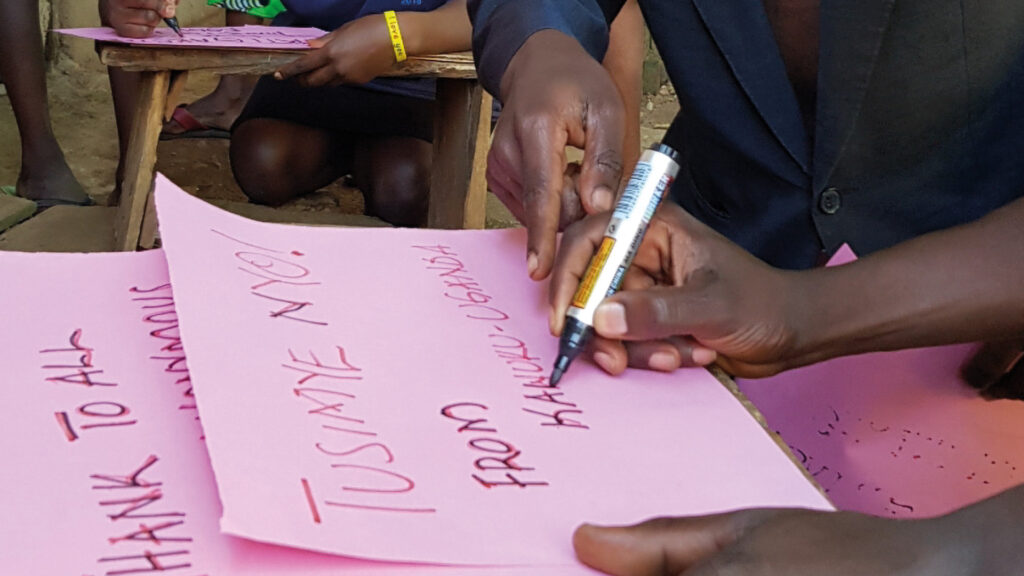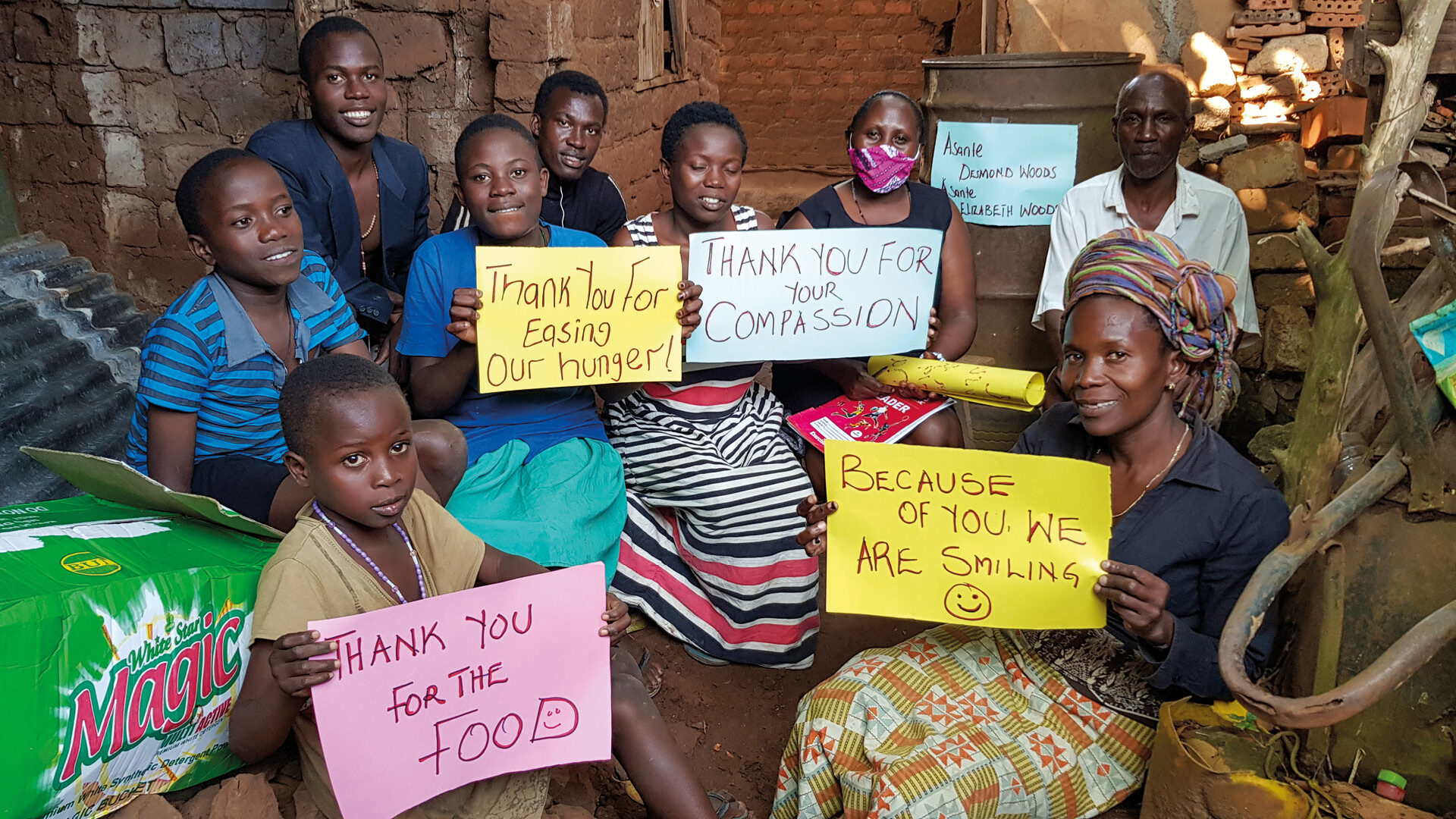
COVID-19 has struck hard for the many women in Uganda, who survive by market trading fruit, vegetables and fish. The markets have been closed to combat the pandemic, and the small incomes that sustained families have been lost.
Ugandan Rotary Peace Fellow Emily Nabakooza is working hard to help provide a small replacement income and basic staple dry food to help these women and their children and grandchildren survive extreme poverty.
Emily was selected as a Peace Fellow in 2017, sponsored by Rotary International, and graduated with a master’s degree from the University of Queensland in Conflict Resolution Studies in 2019. She also studied overcoming extreme poverty in low income countries. Emily has established the Assisi Centre for Social Justice and Peace in Kampala, Uganda, and is working in this crisis with some of Uganda’s most impoverished families.
“Barely a year after its launch, the centre has registered a number of achievements through its different programs. These include a reduction in the prevalence of COVID-19 driven hunger and malnutrition among highly vulnerable communities that has seen more than 1250 beneficiaries by providing women food vendors the opportunity to revitalise their businesses through the ‘AKABBO KA BAKYALA’ (Women’s Basket) project.”
Officially launched in 2019, the Assisi Centre exists to accelerate inclusive actions towards an equal, just and peaceful Uganda society for all. In pursuit of its goal, the centre works closely with individuals, institutions and communities to tackle root causes of violence in all its form against children, women and girls; advances processes that fully utilise the potential of women and girls and young people to challenge barriers that constrain their choice and agency; and scales innovative interventions that build competencies for conflict resolution and abilities to drive sustainable peace and development among targeted groups.
Barely a year after its launch, the centre has registered a number of achievements through its different programs, mainly in emergence response, with the support of Rotary District 9705 and the Rotary Club of Canberra, ACT.
These include a reduction in the prevalence of COVID-19 driven hunger and malnutrition among highly vulnerable communities that has seen more than 1250 beneficiaries by providing women food vendors the opportunity to revitalise their businesses through the ‘AKABBO KA BAKYALA’ (Women’s Basket) project. Forty-five women food vendors received cash assistance and report that the AKABBO KABAKYALA initiative has given them a chance to restore their income earning opportunities and to support their families with essential necessities during the COVID-19 crisis.
One such beneficiary is Josephine. Josephine sells her smoked fish to restaurants in Kampala, but without any money she could not
buy fish.
The Rotary Club of Canberra successfully applied for a Rotary Foundation Grant of $5000, which grew to $10,000 with club and member contributions. The small grant was donated to the Assisi Centre and enabled Josephine to buy more fish, smoke them, sell them, and make a small profit. Her business is now back up and running.
“When I am able to provide women with food to cook for their families or a small sum to help them get back to work as a trader, they call me ‘the Rotary Lady’,” Emily said. “I am humbled by their gratitude to me and I pass their thanks on to Rotarians in Australia, who are making a difference to Ugandan families.”
If you would like to assist Emily and the Assisi Centre in doing good in Uganda, contact President of the Rotary Club of Canberra, Desmond Woods, on 0427 663 449 or [email protected].
